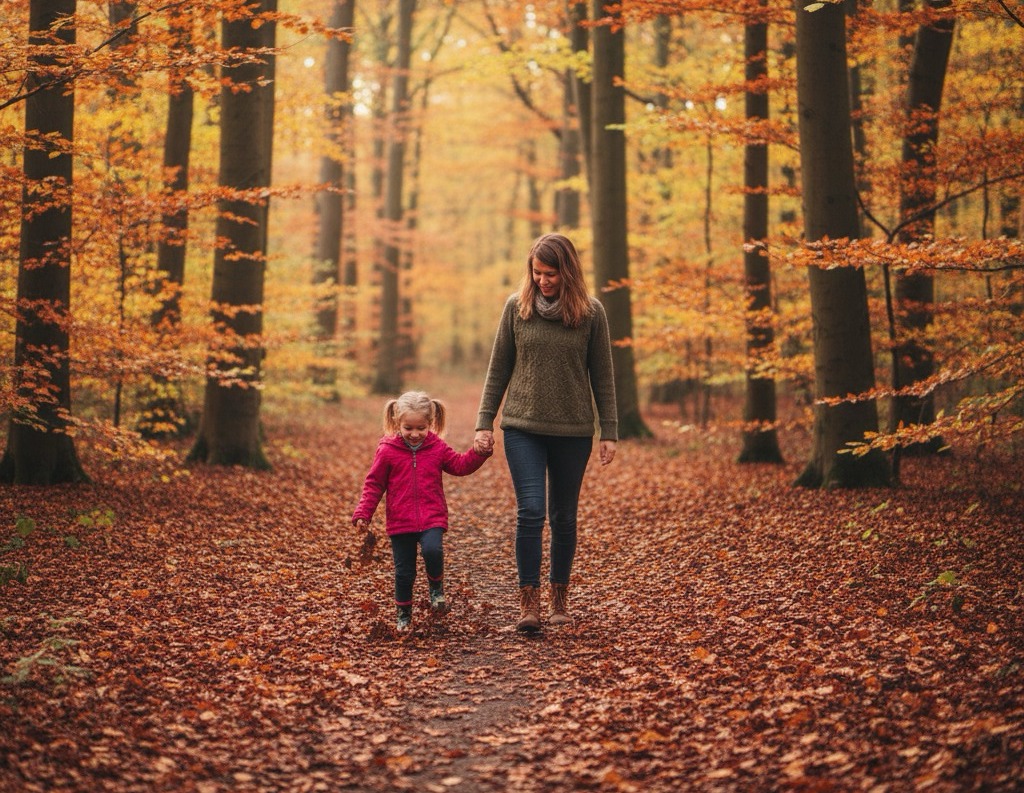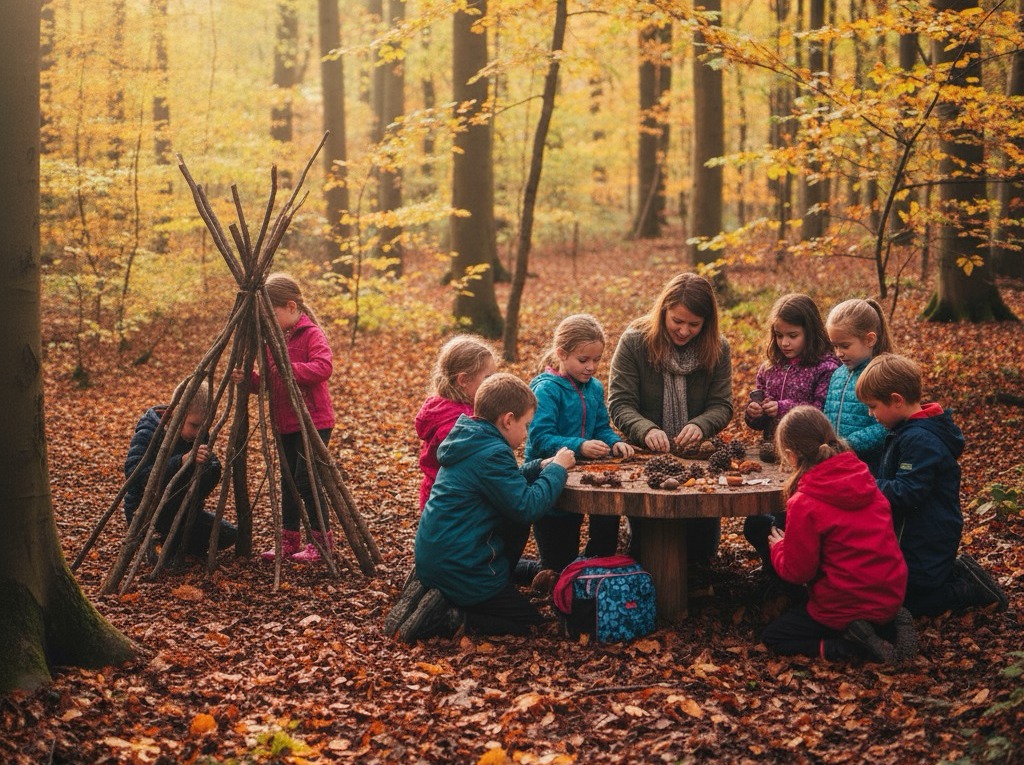· Guides & Resources · 3 min read
How to Get the Most from Your Child’s Forest School This Autumn: A Parent’s Guide
A practical guide for parents to support their children in Forest School this autumn, including preparation tips, seasonal activities, and ways to enhance learning and wellbeing.

Autumn marks the start of the school term and brings a unique opportunity for children to reconnect with nature. Forest School provides a balance of structured learning, imaginative play, and outdoor exploration that can support both educational and emotional development. This guide helps parents prepare, participate, and enhance their child’s Forest School experience during the autumn months.
Why Forest School is Perfect for Autumn
Autumn offers a vibrant natural classroom with changing leaves, seeds, conkers, and cooler temperatures that make outdoor play enjoyable. As children return to school, Forest School can support their transition by fostering resilience, confidence, and social skills through exploration and hands-on learning.
Some of the key benefits include:
- Emotional adjustment to the new term
- Exposure to seasonal natural phenomena
- Opportunities for creativity and problem-solving
- Development of physical skills in varied outdoor environments
Preparing Your Child for Forest School
Proper preparation is essential for children to enjoy Forest School fully and safely. Parents should consider clothing, equipment, and mindset.
Clothing and Kit
Layered clothing is crucial to keep children warm and dry. Essentials include waterproofs, wellies, hats, gloves, and spare socks. Our Forest School Clothing Advisor provides a checklist tailored to UK autumn weather.
Mindset and Expectations
Encourage children to embrace the outdoors and understand that getting muddy or wet is part of the experience. Talk about what they might see, touch, and explore.
Nutrition
Provide a healthy snack and a drink for breaks, especially in cooler weather. A flask with warm water or a child-friendly hot drink can make a big difference.
Supporting Learning at Home
Parents can extend the Forest School experience beyond the site with simple activities that complement autumn learning:
| Activity | Purpose | Age/Year Group |
|---|---|---|
| Nature Journals | Observing seasonal changes | Reception–KS2 (Ages 4–11) |
| Leaf Rubbings | Art, texture exploration | Nursery–KS1 (Ages 3–7) |
| Seed Dispersal Experiments | Science, plant growth | KS1 (Years 1–2) |
| Mini Scavenger Hunts | Observation and problem-solving | EYFS–KS2 (Ages 3–11) |
| Storytelling Circles | Literacy, imagination | KS1–KS2 (Years 1–6) |
Communicating with Your Child’s Forest School
Parents play an important role in supporting learning and ensuring safety:
- Ask providers about the weekly plan and learning objectives.
- Share relevant information about your child’s allergies, needs, or preferences.
- Encourage reflection by discussing the day’s activities and discoveries.
- Attend family Forest School events when available.
Dealing with Common Challenges
- Rainy Days: Use waterproof clothing and embrace sensory play in puddles.
- Mess: Bring a change of clothes and remind children that outdoor learning involves getting dirty.
- Shyness or Anxiety: Start with shorter sessions, buddy children up, and communicate with the provider for support.
Fun Autumn Projects at Home
- Autumn Treasure Box: Collect leaves, acorns, and pinecones to examine and create seasonal displays.
- Leaf Art & Crafts: Make leaf mandalas, collages, or prints.
- Outdoor Maths Games: Count conkers, sort leaves by size or colour, or create patterns.
- Mini Wildlife Observations: Track birds, squirrels, or insects and record findings in a nature journal.
- Story Stones: Paint stones with forest symbols and use them to create seasonal stories.
Final Thoughts
Forest School in autumn is an opportunity for children to build confidence, develop practical skills, and reconnect with nature. By preparing appropriately, supporting learning at home, and maintaining open communication with providers, parents can enhance the experience and ensure their child thrives throughout the term. Make the most of the season and let your child’s curiosity lead the way.


